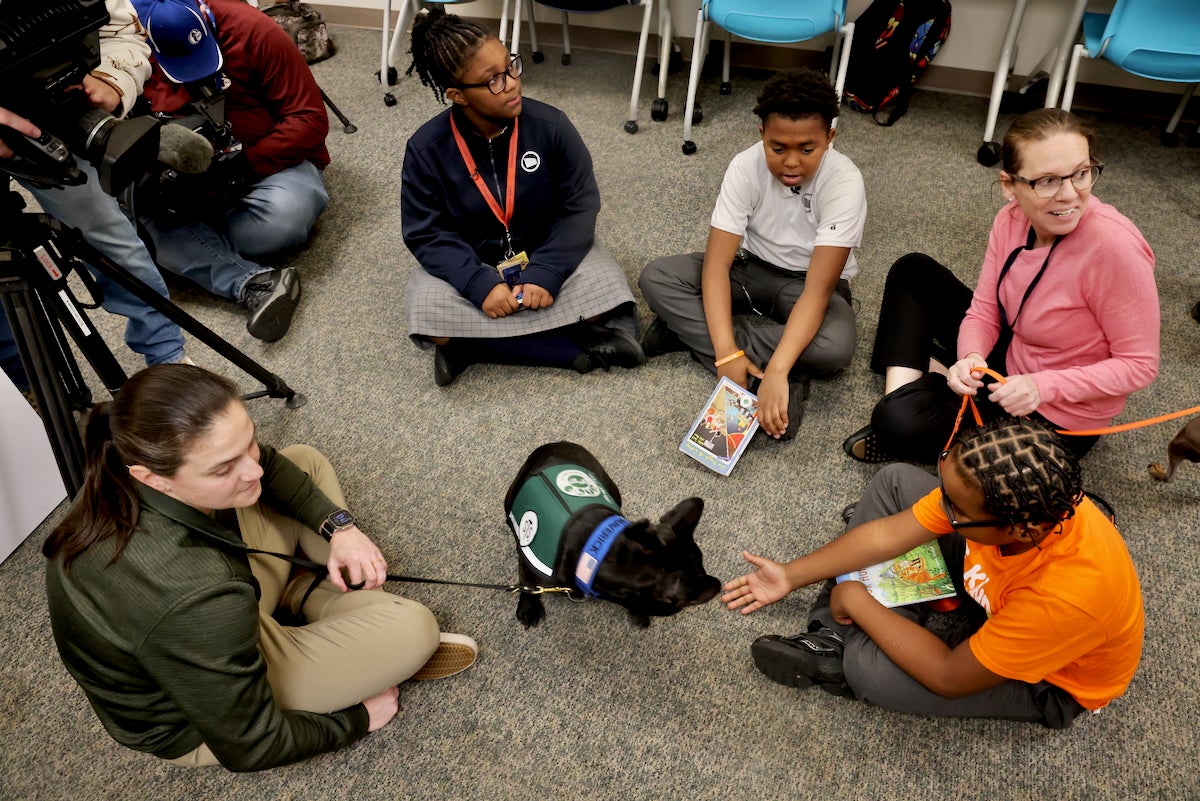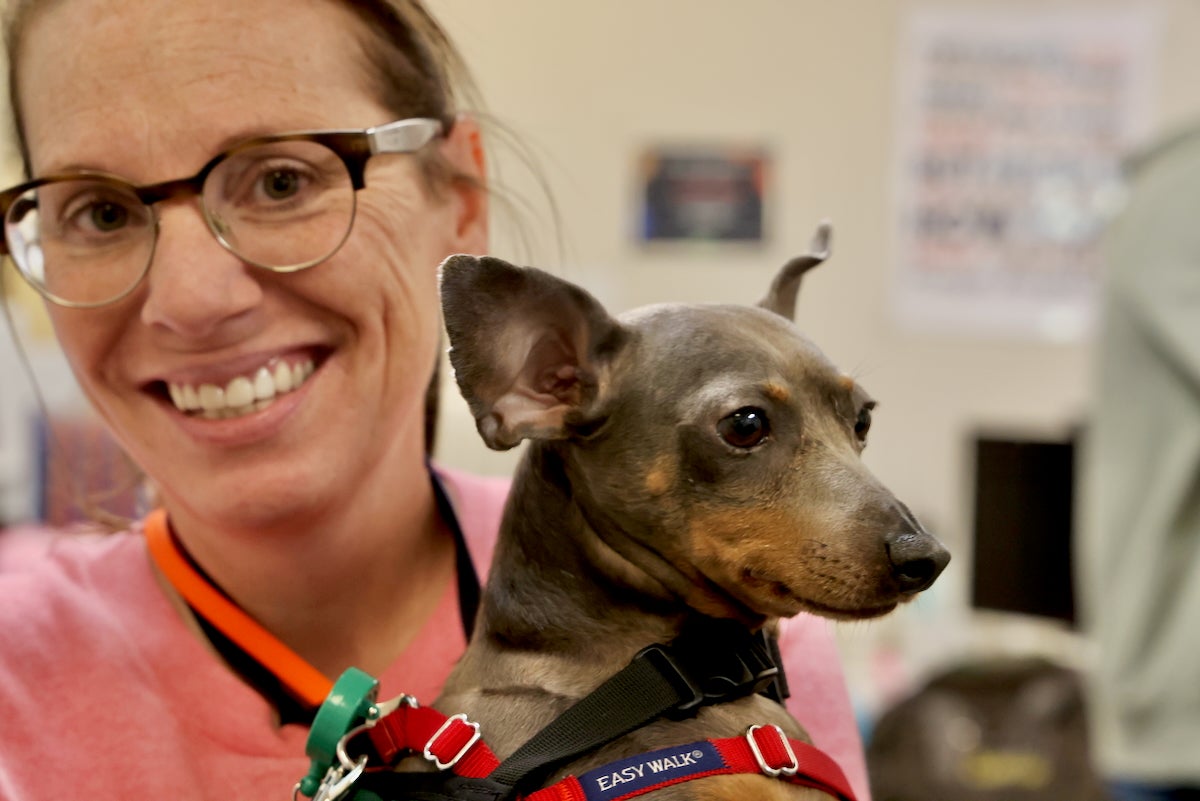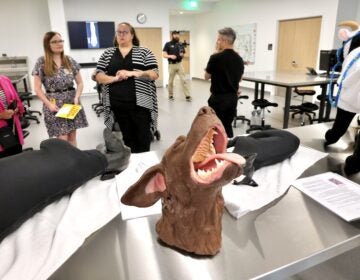School let the dogs out: Philadelphia’s String Theory has a staff of 4-legged therapists
Every day, trained therapy dogs roam the halls of the Center City charter school, and they’re having a positive impact on student performances.
From Philly and the Pa. suburbs to South Jersey and Delaware, what would you like WHYY News to cover? Let us know!
Dogs are now running the halls of String Theory Charter School in Center City Philadelphia every day. The school began the academic year with a new program to have therapy dogs on hand at all times.
One of them is Maverick, a 2-year-old French bulldog newly certified as a therapy dog. Its owner is Samantha Sarin, a student behavioralist at String Theory. She said just the presence of Maverick in a classroom improves students’ performance.
“He visits classrooms, or students are able to come to my office and see him,” she said. “We’ll walk through the hallways and greet people, or he can sit in a classroom while a teacher is doing a lesson.”
“Last week, there was a student that was upset. She was disengaged and off to the side. But I noticed that she was watching Maverick,” she added. “She came a little closer and put her hand down, calling him over. Her mood improved instantly.”



Sarin is one of seven staff members at String Theory who put their personal pets through an 11-month training program at Attitudes in Reverse, a mental health awareness organization based in Princeton, New Jersey.
Dogs are known to trigger beneficial neurotransmitters in the brains of humans, including oxytocin, serotonin and dopamine. They also decrease stress-inducing hormones like cortisol.
You don’t have to own a dog to benefit from them. Studies show that brief encounters with other people’s dogs can improve one’s mental health.
String Theory’s school psychologist, Allison Hussey, said the presence of dogs can lower anxiety levels in students, helping them perform better in class.
“Especially after COVID, we’re trying to do everything that we can to cultivate student well-being,” she said. “This is a simple way where a student’s day can be brightened just by seeing one of the dogs in the hallway.”



Unlike other dogs trained for specific work, these therapy dogs don’t appear to do much. In a circle of students sitting on the floor learning to read by reciting simple sentences from paperbacks, Maverick and his colleague, Polly, a brown and white miniature Pinscher, mostly sniff the kids’ feet and wander around.
But the mere presence of the dogs’ affection — without a whiff of criticism — helps the young readers relax into learning. Their extensive training makes the dogs reliably calm, no matter the situation.
“We train for the unpredictable because that’s what the school environment is,” said Trisha Baker, founder of Attitudes in Reverse. “Is the dog going to be walking down the hall with hundreds of students, in chaos? Is there going to be a school shooting drill? We have to teach them to be calm and quiet during that.”
“Not every dog is able to fulfill the requirements. Sometimes dogs have anxiety themselves and are better off home on the sofa,” she added. “That’s perfectly okay.”
While many organizations train and use therapy dogs, Attitudes in Reverse is believed to be the only one in the country to create programs within schools so that therapy dogs are on hand all the time.
Maintaining a team of mental health dogs means looking after their own mental health.
“We’re working with the staff to teach them to look out for body clues that the dogs might be offering,” Baker said. “Is the dog showing signs of stress? A stressed dog might bite.”
“They have to take breaks. They work maybe an hour at a time and then they go take a half-hour, 45-minute break,” she said, “ Because they will burn out.”


Get daily updates from WHYY News!
WHYY is your source for fact-based, in-depth journalism and information. As a nonprofit organization, we rely on financial support from readers like you. Please give today.







